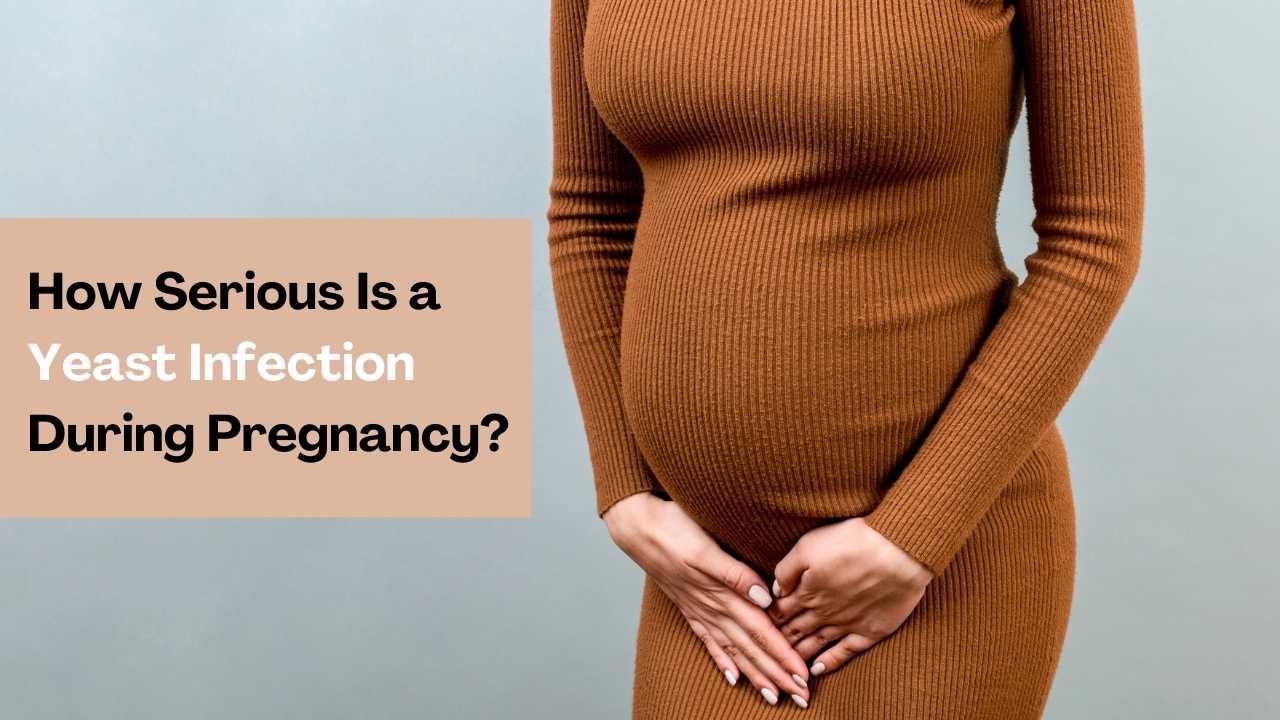Introduction
Yeast infections are very common in pregnancy, especially in the second trimester. You may have noticed a rise in thin, white discharge volume with an unpleasant odor. In the second trimester, this is a frequent and typical symptom.
Although yeast infections have no substantial detrimental effects on pregnancy, they are generally more challenging to control during this time and can cause severe discomfort. Don’t put off getting help!
If you suspect you have a yeast infection, the following information will help you prepare to talk to your doctor about it. This blog will tell you everything you need to know about yeast infections.

What is a yeast infection?
Lactobacillus acidophilus, the most prevalent bacteria, aids in the management of yeast and other organisms in the vaginal area. When vaginal pH is disturbed, this good bacteria decreases and there is increased chances of yeast infection. The most common yeast infection in vaginal area is known as candidiasis.
There is increase in estrogen during pregnancy which can throw off your pH balance, as a result yeast infections in early pregnancy become prevalent. This infection can occur in the second trimester as well.
Although having a yeast infection while pregnant is unpleasant, it will not endanger your health or that of your unborn child. On the plus side, treating yeast infection pregnancy symptoms is simple.
Symptoms of yeast infection in pregnancy
Itching in the vaginal and vulvar areas is very likely symptom. A white vaginal discharge is also possible. This discharge may resemble cottage cheese and should be odorless. These signs and symptoms could last a few hours, days, or weeks.
Signs and symptoms include:
- A rash on the vulva and the skin around it (appears on the groin and thighs)
- Soreness or pain in the vagina or vulva when you urinate.
- Burning/Itching
- Candida infection can arise in newborns and mothers with a weaker immune system. Thrush is the term for this condition.
Other disorders, which can cause symptoms comparable to a yeast infection
- Sexually transmitted diseases (STDs) such as chlamydia and gonorrhea bacterial vaginosis,
- A type of infection caused by a product used in the vaginal area like – soap or a condom allergic reaction
20+ Years Of Experience as Fertility Specialists
20 Years Of Experience as a Fertility Specialists
National Fertility Awards 2023
Call Us
+919990044555
Book An Appointment
Follow Us On
What is the treatment?
While you are pregnant, it may take 10-14 days to obtain relief or entirely clear up the illness. To avoid a recurrence of infection, apply a starch-free drying powder or Nystatin powder after the infection has cleaned up and any sores have healed.
Only vaginal creams and suppositories are recommended during pregnancy, according to doctors. If this infection is not treated, it can spread to your baby (during birth).
The following topical antifungal medications are safe to use during pregnancy:
- Clotrimazole
- Terconazole
- Miconazole
According to research, taking an oral “azole” antibiotic minimizes your chances of getting the infection again.
Diflucan (oral medicine) has not been established to be safe during pregnancy or lactation.
Because not all vaginal creams and suppositories are safe to use during pregnancy,you should see your doctor before beginning treatment while pregnant. They can determine if you have a yeast infection and prescribe a safe treatment to use while pregnant.
Diagnosis
- Your doctor will interview you about your symptoms and perform a physical examination.
- A sample of your vaginal discharge – It will be examined under a microscope for too check for the presence of fungal microbes (yeasts).
FURTHER READING
Preventive measures for yeast infection in pregnancy
You can lower your chances of getting yeast infections in the future by doing the following:
- Use your blow dryer on a low, cold setting to gently dry the outside of your genital area after a regular wash
- Properly wipe down the toilet after using it (front to back.)
- After swimming, take a shower right away. Change out of your swimsuit, gym clothes, or other damp clothing as quickly as possible.
Do not:
- Sprays for feminine hygiene
- Use deodorant-containing sanitary pads and tampons.
- Scented soaps/take a bubble bath
- Toilet paper that is colorful or scented.
- Avoiding bubble baths
- Oral sex might exacerbate your symptoms and impact your sexual partner.
Conclusion
If you want to avoid a yeast infection, you need to know what factors cause it in the first place. While yeast infections can affect people of any age, some risk factors can increase your chances of getting one.
Mild yeast infections are the easiest to treat, especially if discovered early. Severe or recurrent yeast infections may take longer to recover. Contact your doctor if the symptoms of a yeast infection worsen or return.
You can talk to our obstetrician-gynecologist if you need information about yeast infection and pregnancy. Find out why our maternity clinic is one of the best in Delhi by contacting our specialist today!
Share this with
Related Blogs
Leg cramps in pregnancy : How to get rid of it?
Comprehensive Fertility Treatments | Gynaecology Procedures | Menopause Management | Pregnancy Care | Maternity & Birthing Call +919990044555Read this small article by IVF experts of the best IVF center in Ghaziabad – Gunjan IVF World on how to get rid of leg...
Is it safe to travel in pregnancy?
Comprehensive Fertility Treatments | Gynaecology Procedures | Menopause Management | Pregnancy Care | Maternity & Birthing Call +91-9990044555IVF experts of the best IVF clinic in Delhi – Gunjan IVF World share an article on the best time to travel during...
Follow Us On
About Author





